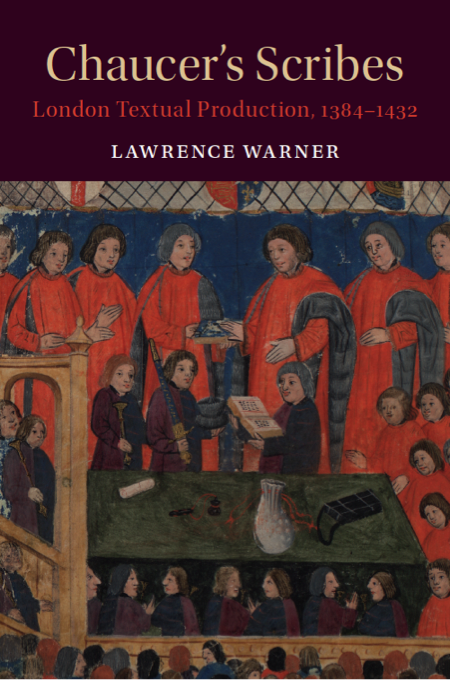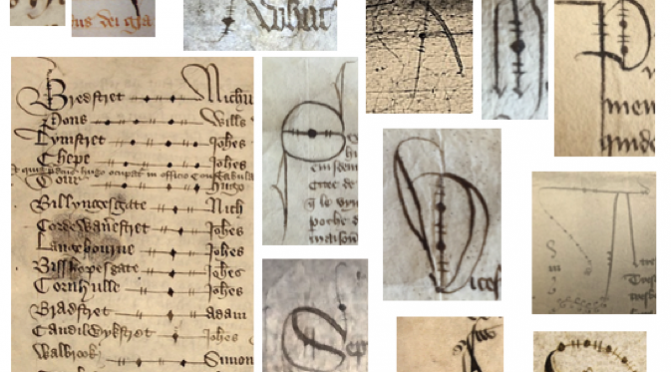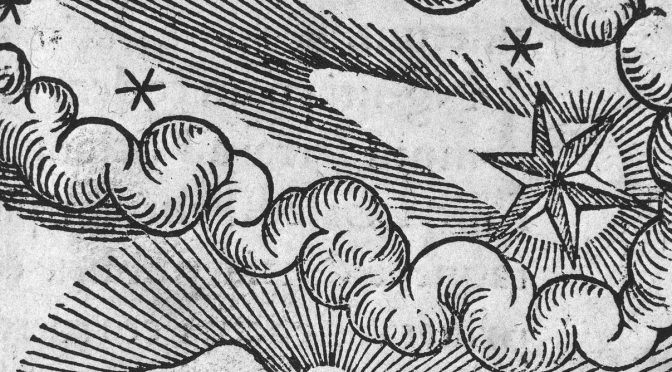by Lawrence Warner, Reader in Medieval English, KCL

Dr Warner’s third monograph, Chaucer’s Scribes: Medieval Textual Production, 1384-1432, was published by Cambridge University Press in 2018. He is also undertaking a new critical edition of Sir Gawain and the Green Knight. He is recipient of the 2016 Beatrice White Prize of the English Association for outstanding scholarly work in the field of English Literature before 1590, and Honorable Mention for the Richard J. Finneran Award for 2013, awarded by the Society for Textual Scholarship.
How did I end up writing a book arguing that the most exciting announcement ever in Chaucer studies — in medieval literary studies, perhaps even in English studies as a whole — was, to be blunt, wrong?


